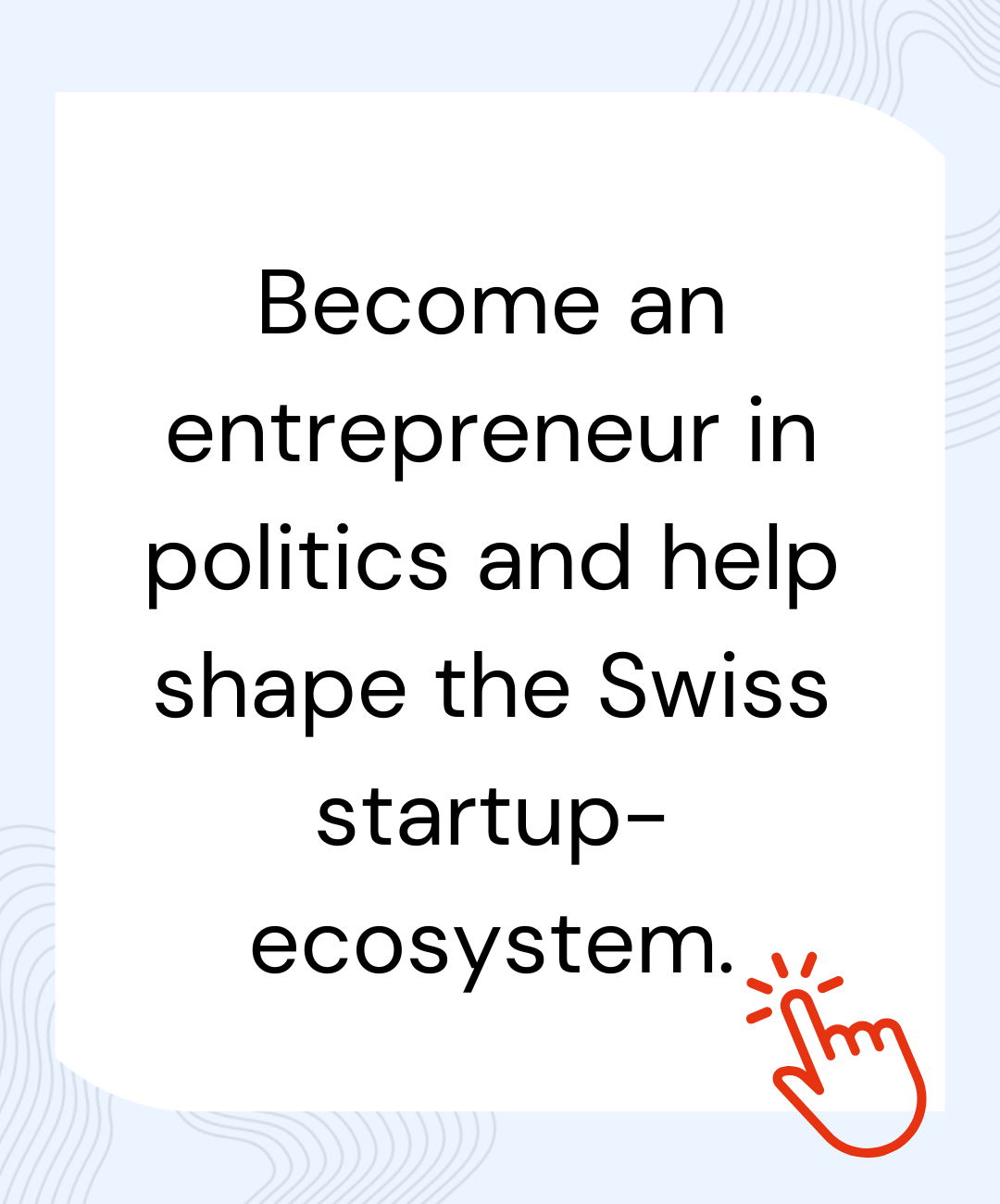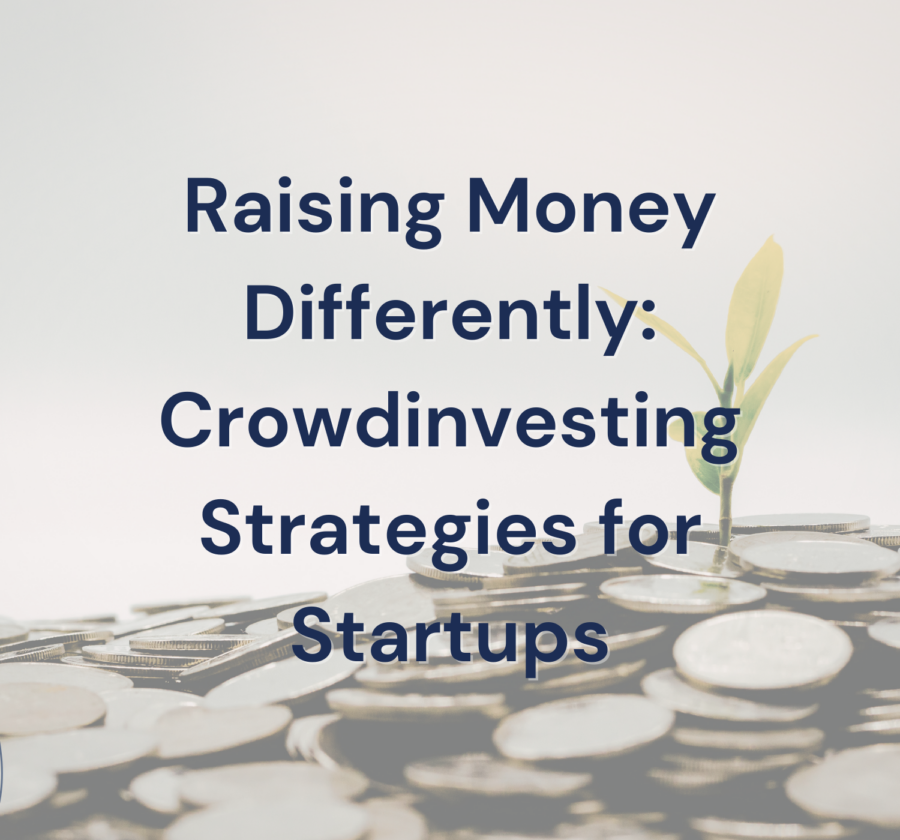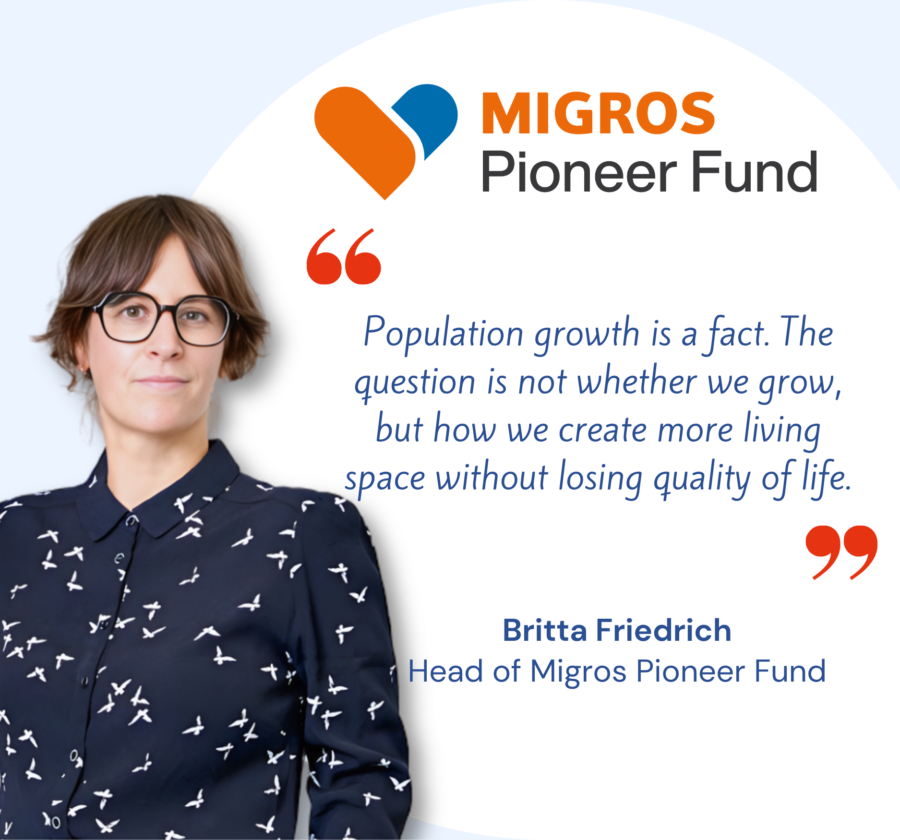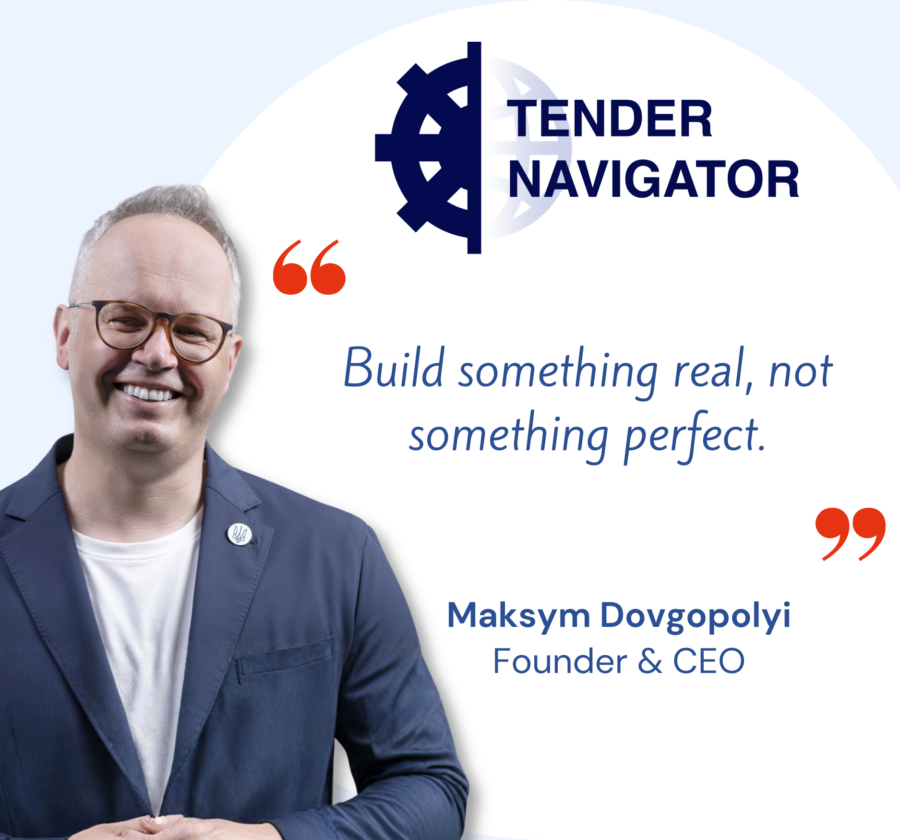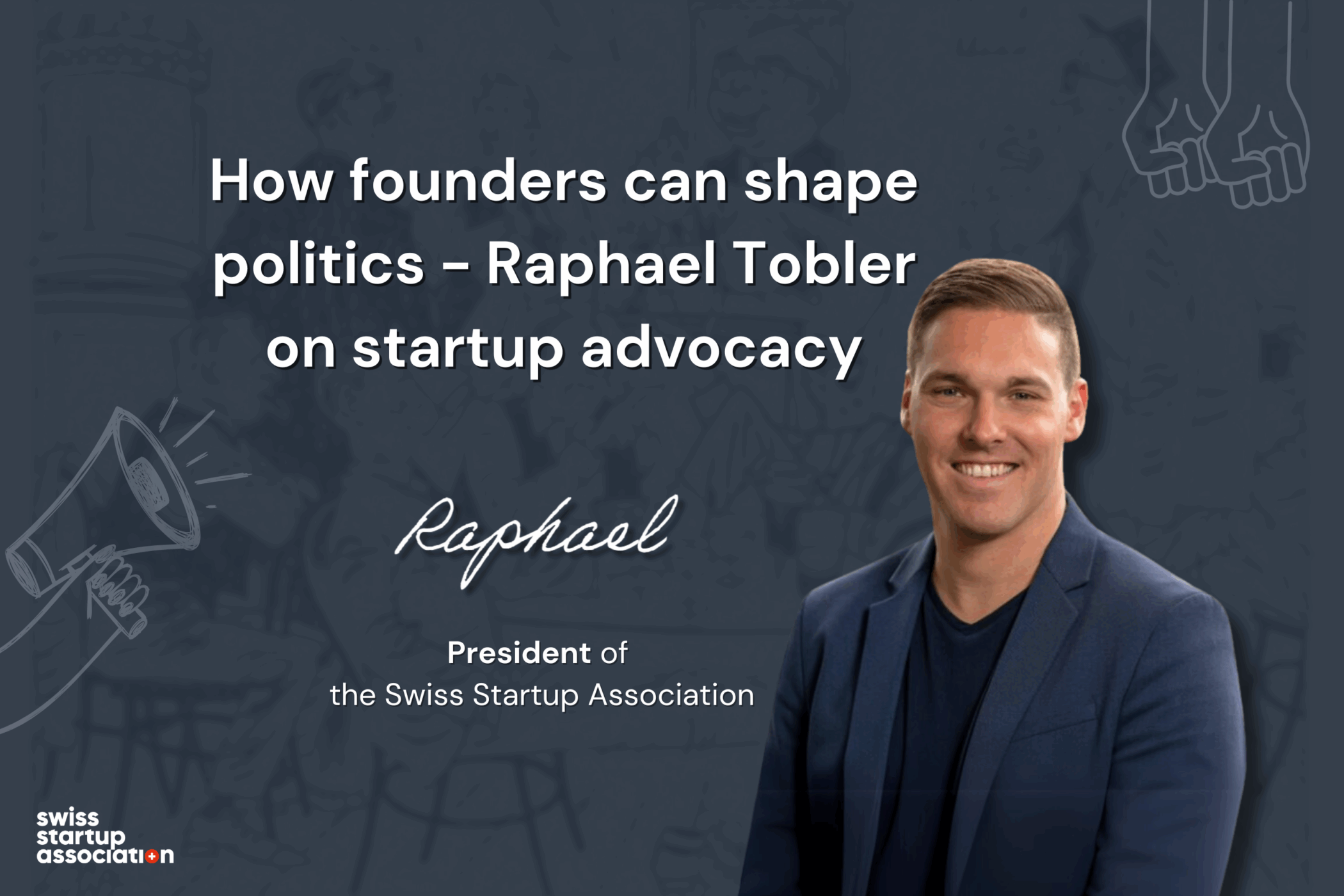
How founders can shape politics – SSA’s Raphael Tobler on startup advocacy
Suzanne had the opportunity to talk to Raphael Tobler, President of the Swiss Startup Association (Stadtrat in Winterthur & President of FDP Winterthur) about how SSA’s political advocacy works and what role members/founders play.
Q: What originally motivated you to get into politics?
Raphael: Startups were really the impetus for me getting involved in politics. I wasn’t born into a political family, but I got involved in Startup Nights here in Winterthur and saw the need to improve the ecosystem for startups, have events, a co-working space, etc. While I could address those things here myself, other issues – like employee shares and visa topics – were beyond what can be changed from Winterthur. Those issues need to be addressed at the national level.
That made it clear Switzerland needed a startup association: an umbrella organisation for the startup ecosystem, working to improve the framework conditions. I didn’t create the SSA because I wanted to go into politics – politics became necessary because we created the SSA. Founding the SSA made it clear that political engagement was required to drive change for startups.
I’d already been a member of the FDP for some time but became more involved when a friend asked me if I would like to join the local team. I had already envisioned contributing locally – helping, advocating, pushing for what I believe is right. I was elected to the Winterthur City Parliament in 2022. Even though my role in the city parliament is focused on local issues like infrastructure and budget, it’s invaluable for understanding political processes.
Q: How does SSA’s political advocacy work?
Raphael: The challenge right from the start was: how do we fund the advocacy? We needed money to hire a researcher and money for campaigns (you need 3-5 million CHF for a referendum campaign in Switzerland).
We set up the SSA with a strong operational team to organise events and build a compelling value proposition for members. We also secured strategic partners – from law firms to corporates – who shared our vision and supported our efforts. As soon as the SSA was large enough, we were able to fund people to research political topics, write papers, set up meetings and start trying to influence policymakers.
We have three types of advocacy topics:
- Known topics, like ESOP (Employee Stock Ownership Plan & PSOP Phantom Stock Ownership Plan). Everyone knows and has known for a long time that the situation is not ideal – but nobody knows exactly how to fix it. Some people have already tried, but it’s complicated. However, it is an issue we need to solve. Visa policy is also a known topic.
- Unknown topics like the Investment Control Law (Investitutionsprüfgesetz), which came out of nowhere. One national parliamentarian had the idea that the government should have approval of any foreign investment into Swiss companies. Some in the national parliament thought it was a good idea, whereas we anticipated significant issues for startups. We had to quickly figure out what the next steps in the parliamentary process were, identify how we could influence, decide what we should do and how to influence the direction. We often have to react fast and ad hoc when it comes out of nowhere, progresses quickly and you rapidly need to give inputs and do a position paper.
- Potential topics include those we think or have heard of as a problem, but it is not clearly defined. It could be as unclear as a startup founder telling me that there is a problem or some situation not working for them. We investigate: is it really a problem? Only for the founder as an isolated issue or a more widespread problem? And if it seems to be a problem, we’d do further research. An example here is university spin-offs – some think there is room for improvement, however there are no papers about it, no statistics, so we need to do the research. We need to figure out how the process works, what is good and bad; talk with founders, with universities. And maybe then we figure out that it is not a big issue or maybe it’s something we need to prioritise.
Across all these topics, we ask: what are the next steps? how can we improve the situation? in small steps or big steps? is change at the national or cantonal level? It is very important to understand why the situation is as it is and then identify what could be changed and the different ways to improve the situation.
Change can take a long time, with the research alone taking a few months. If the only way to change is a national referendum, that takes 5-10 years and significant costs.
A WhatsApp group with ~50 key ecosystem players – investors, founders, politicians – helps us test ideas and get instant feedback.
We talk with politicians who maybe have tried to improve a situation in the past. It’s always better to have a 1-1 dialogue about improvements, see how open they are to change. Sometimes it’s easier – just talk with people from the government to explain, they get it and how to solve it. Sometimes we just need a politician in Bern who gives the paper to the Bundesrat and the Bundesrat says OK, let’s change it and it gets changed.
For other topics, we produce a detailed dossier of facts, stories and ask for assistance in solving the problem. We send that to politicians – we know some are more open and we have good relationships – asking for support and to help find the solution.
There are different ways to bring about change. Sometimes it’s successful, sometimes not.
Q: What is SSA’s biggest success story?
Raphael: From the perspective of individual startups, there have been situations where a startup’s visa application for a co-founder was rejected. We reviewed the paperwork, wrote to the authorities, explaining why we thought that was a mistake and requesting an approval. When that visa is subsequently approved, that’s a success – because without that visa, the startup simply couldn’t operate.
Looking at the bigger picture, a success was opposing the JUSO’s 99% Initiative to significantly raise taxes. The SSA campaigned against that law and we were on the winning side in the referendum.
Q: What about failures? Are they failures or does it just mean you’re still working on it?
Raphael: One big ‘failure’ is that sometimes it takes a very, very, very long time and we are unable to convince people to do it faster or to do it easier.
Another disappointment: the vote on removing the 1% stamp duty failed – even though Parliament supported it. Now we’ll likely have to wait a decade for a second chance.
Q: What can startup founders or SSA members do to support SSA’s political advocacy?
Raphael: A great example is the farmers in Switzerland. There’s a well-organised farmers’ association and if they have an issue, then all the farmers in Switzerland put up posters on their land to spread the word. We all know about it!
We can improve in our startup ecosystem. We all need to get out there – raise awareness, mobilise our networks and make noise when it matters.
Of course, the talking points and message need to come from the SSA, but then the founders – there are so many founders and startup employees – if everyone would be very active among their family, friends, social media, wherever and spread the word, that would definitely help a lot.
Secondly, we need more founders in politics. Maybe if you have exited and sold your company, why go into VC management and not into politics? More politicians with startup experience would be very helpful.
Supporting the SSA as a member helps. If there is a campaign, we need funding – more money means a more influential campaign.
And very important is that we get the inputs from startups. What is wrong? What is not working? Where are some hurdles to fix?
Q: An objective of SSA’s new Public Affairs Manager is to help SSA strengthen the voice of Swiss founders in political dialogue. What does that involve?
Raphael: As a first step, we are working on a manifesto to bring all the relevant topics together – the known topics and potential issues – with facts consolidated into one document. We’ll review, get agreement on the 10 biggest issues and we have our agreed priorities.
In parallel, we have started building a dossier for each topic, so that we have all the facts, statistics, contacts, examples, recent history and clear issues to brief policymakers and support campaigns.
It is also critical to co-ordinate with other associations, politicians and important stakeholders. For the upcoming e-ID referendum (28. Sept 2025), we’re working with other groups to figure out who takes the lead, who is doing a campaign and ensuring they do not forget the importance for startups. We’ll also try to activate our members, explaining benefits for startups and asking them to spread the word, to tell friends why it’s important and that they should vote yes for the digital ID.
Startups need political voices – and politics needs startup thinking. That’s the role SSA is playing. And with more founders, more members and more engagement, we’ll be even louder and more effective in shaping the future.
The Swiss Startup Association
We invite everyone in our community to stay informed, stay engaged, and help ensure that Switzerland remains a place where innovation and entrepreneurship can thrive.

